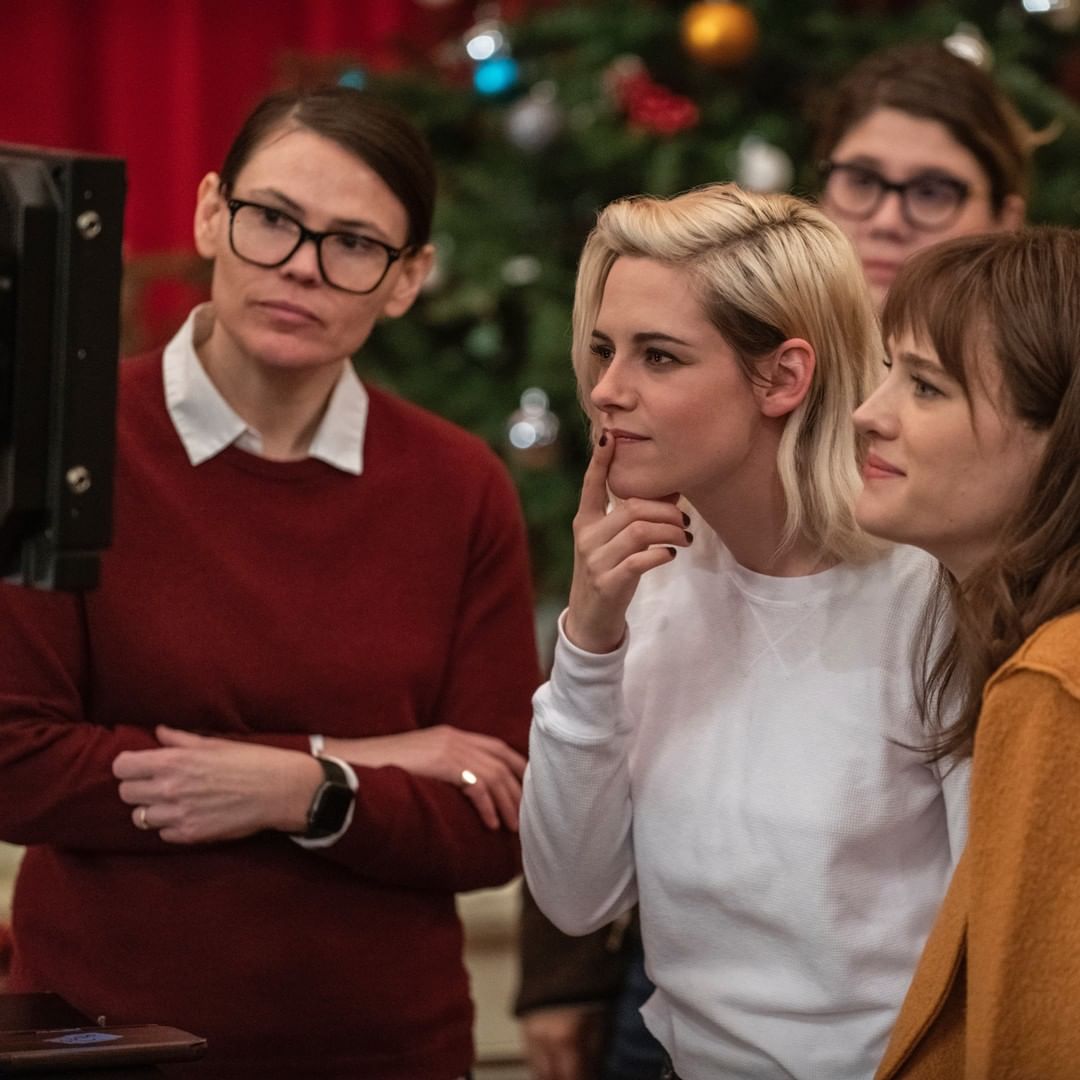Entertainment
Happiest Season is the first LGBTQ+ Christmas movie from a major Hollywood studio and it’s receiving criticism – is it fair?

FILE: Don’t miss an Instagram Live Q&A with #HappiestSeason director Clea DuVall (@officialclead) and co-writer/star Mary Holland (@maryhollandaise) TOMORROW at noon PT. 🎄🌈 (Photo: happiestseason/Instagram)
When the collective back catalogue of a film’s cast and crew includes stars like Kristen Stewart, Schitt’s Creek’s Dan Levy and GLOW’s Alison Brie, you know there’ll be a ready-made audience waiting in anticipation, whatever the theme.
Make it a “heart-warming Christmas story” and you get Hulu’s “best viewership for any original film” attracting “more new subscribers than any other previous feature title”. But Clea DuVall’s Happiest Season, is a little different in that it’s the very first LGBTQ+ holiday movie from a major Hollywood studio.
In spite of 2020’s COVID-shaped dent in cinema releases – Happiest Season was diverted online because of the pandemic – the year caps an unprecedented decade for LGBTQ+ representation on screen. From the Oscar-winning Moonlight to the critically acclaimed coming of age comedy Booksmart, film is certainly turning a corner.
Online and off, ‘tis the season for new perspectives on Christmas, too. Netflix is following up 2019’s Let It Snow with A New York Christmas Wedding. The website Etsy centres a gay couple in its 2020 Christmas advert. And Hallmark and Lifetime both release their first gay Christmas films this year.
Coming out at Christmas
Unsurprisingly, Happiest Season’s central seasonal premise isn’t entirely new. A woman invites her partner home to her tight-knit family. There are some awkward conversations about separate bedrooms, and later the revelation of a secret.
Read more:
Film has a lot to learn from TV when it comes to LGBT representation
In spite of its potential for gorgeous camp, the holiday movie has been foremost among genres for confining LGBTQ+ representation to the gay best friend or sibling. Love Actually cut its would-be lesbian storyline and emerged a largely white and straight-washed Christmas tale that feminists have loved to hate ever since.
Happiest Season acknowledges the genre’s undeniable heteronormativity by making a spectacle of it. But there’s a paradox at the heart of DuVall’s bid to make a romcom premised on the painful process of coming out. A literal “trapped in the closet” gag will certainly get knowing laughs, but isn’t it a little close to the bone?
Jamie Babbit’s But I’m a Cheerleader – starring DuVall herself – managed to make a traumatic gay conversion therapy storyline both funny and heartwarming. But a very particular set of expectations seems to be levelled at the holiday movie, which is not just about its seasonal setting (famously, Die Hard is counted out) but its “spirit”.
New Queer Cinema
Queer film and media makers who have ventured into this territory have often chosen to reveal its contradictions and exclusions. In Desiree Akhavan’s Appropriate Behaviour, Persian New Year is the setting for Akhavan’s protagonist Shirin to come out to her mother – or rather to try and fail.
Lena Waithe’s Emmy-nominated “Thanksgiving” episode on Master of None uses the cyclical nature of holiday celebrations to acknowledge that coming out is something that happens over and over again. And Pose’s Christmas episode embraces the long-held queer notion – for many, by necessity – that the most important family is your chosen one. Evidently, none of these examples fit the bill for those on the hunt for an LGBTQ+ holiday movie.
How do you make a heart-warmer that takes its queer characters seriously and acknowledges that Christmas isn’t necessarily joyful for everyone? DuVall calls Happiest Season a “universal story from a new perspective”. But such claims have always created conflict for queer directors wanting to appeal both to a subculture and to the mainstream.
The New Queer Cinema movementin the 1990s addressed this conflict head on, exploring the need to represent the complexity of sexuality rather than tying it up in happy endings.
When I teach this particular episode of queer cinema history, epitomised by trouble makers who refused to sign up to acceptable narratives of LGBTQ+ love and romance, students often ask what’s wrong with so-called positive representations that celebrate LGBTQ+ identity. After all, we can’t take happy endings for LGBTQ+ characters for granted. Not so long ago, they were actually banned.
And yet, “LGBTQ+ representation” still often stands in for “white and middle-class lesbian and gay representation”, even under a new banner of inclusivity. Happiest Season is a landmark film for LGBTQ+ representation, yes, but it leaves other norms untouched. Sexuality intersects with gender, race and class – on and off screen. The whiteness and wealth of the protagonists might not be commented on within the film itself, but that doesn’t mean they don’t matter.
So is the problem that the film recalls an all-too-familiar trauma, or that it makes it all OK in the end? That it is willing to acknowledge the difficulties of queer life, or that it smooths them over? That it tells one version of an LGBTQ+ Christmas story, or that it presents that story as “universal”? Perhaps the real problem is that a burden of representation means a single film must claim to be “doing it all”.
But on social media, where a film’s life is extended well beyond its own running time, queer commentary is lifting the burden. Re-imagining characters’ romantic destinies, finding unlikely pairings and promoting peripheral characters to stardom has long been part of the pleasure of fan culture.
Twitter is alive with hot takes. Videos tagged “#HappiestSeason” on TikTok have been viewed 40 million times and counting. You can always count on marginalised audiences to find strategies to confront the standards and shortfalls of dominant culture.![]()
Clara Bradbury-Rance, Lecturer in Liberal Arts, King’s College London
This article is republished from The Conversation under a Creative Commons license. Read the original article.





















